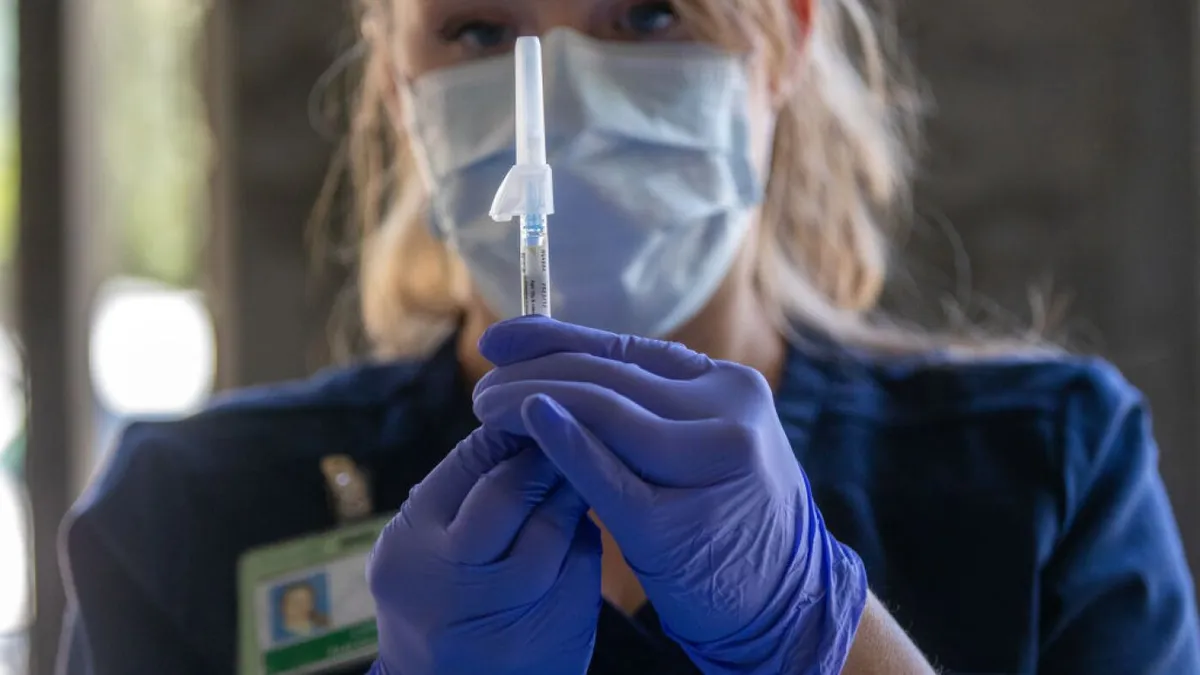
If you're looking to get a COVID-19 vaccine, you might be facing some challenges right now. The Food and Drug Administration (FDA) has recently restricted its approval for this year's shots to specific groups, namely individuals aged 65 and older and those at high risk for developing severe illness from the virus. This marks a significant change from previous years when vaccines were available to anyone aged six months and older.
Health officials from the Trump administration argue that most healthy, younger individuals possess sufficient immunity, negating the need for annual boosters. However, many medical professionals advocate for vaccination to prevent serious illness and to minimize the risk of transmission to high-risk individuals. As a result of these changes, securing a shot may require more effort than before; a simple walk into a pharmacy may no longer suffice, as you might be turned away if you do not meet the new eligibility criteria.
Here's a comprehensive guide to navigating the current vaccination landscape:
A: Yes, there are options available. If you possess one of the risk factors, you can self-attest your eligibility. This means you can inform the pharmacist about your risk factor or indicate it when scheduling your shot. In many cases, no documentation is needed. Some pharmacies may currently require a doctor's prescription for a shot, but this requirement may change following the Centers for Disease Control and Prevention (CDC)'s recommendations, which are set to be discussed on September 18-19.
A: The CDC outlines various risk factors for vaccination. These include:
Individuals aged 65 and older People from racial or ethnic minorities Individuals with disabilitiesFurthermore, a broad range of medical conditions qualifies individuals as high-risk, including:
Asthma Cancer Cerebrovascular disease Chronic kidney disease Chronic lung disease Chronic liver disease Cystic fibrosis Diabetes (both types) Heart conditions HIV Mental health conditions (including depression) Neurologic conditions (Dementia and Parkinson's disease) Obesity Physical inactivity Immunodeficiencies Smoking (even if you quit) Solid organ or blood stem cell transplantation Tuberculosis Use of corticosteroids or other immunosuppressive medicationsThe FDA estimates that between 100 million and 200 million Americans qualify under these guidelines.
A: Pregnancy is also recognized as a risk factor, despite the CDC's recent decision to drop the routine vaccination recommendation for pregnant women. This inconsistency has led to confusion regarding pharmacists' ability to administer the shots and whether insurers will cover the vaccination. The American College of Obstetricians and Gynecologists continues to recommend vaccination during pregnancy for the safety of both mother and child.
A: Yes, the COVID-19 vaccine is approved for children, but this year's eligibility is limited to those with risk factors for serious complications. Notably, only Moderna's vaccine is approved for children as young as six months, while the Pfizer-BioNTech vaccine is available for those aged five and older. Additionally, Novavax's vaccine is approved for individuals aged 12 and up. Parents wishing to vaccinate otherwise healthy children may need a prescription. Unfortunately, no vaccines are currently approved for newborns, despite their vulnerability to severe illness from COVID-19, which is another reason why vaccination during pregnancy is highly recommended.
A: Vaccines for this year have started to roll out across various pharmacies, doctor's offices, clinics, and hospitals. However, some locations may not have received their vaccine orders yet. Manufacturers assure that there will be adequate supply, despite the narrower FDA approvals. Some doctors may choose not to stock the vaccine this year due to anticipated low demand. To find a vaccine, you can visit pharmacy chains like CVS and Walgreens that offer online vaccine-finder tools. Additionally, both Pfizer and Moderna have established dedicated websites to assist individuals in locating vaccination sites.
A: The insurance landscape regarding COVID-19 vaccinations remains somewhat unclear. Insurance companies are mandated to cover vaccines only if they have been recommended by the CDC, which may not happen until next week at the earliest. However, some insurers have indicated that they will cover the shots regardless of CDC recommendations, so it's advisable to check with your insurance provider. About half of U.S. children are eligible for free vaccines through the federal government's Vaccines for Children Program, although COVID-19 shots won't be included until after CDC recommendations are issued—this may also depend on the child's specific health conditions. For those paying out of pocket, shots typically cost between $150 and $200.
A: The CDC's advisory committee meeting is set to take place soon, which could potentially impact the accessibility of COVID-19 vaccines. The outcomes of these discussions may clarify vaccination guidelines and eligibility criteria, allowing more individuals to receive the vaccine.